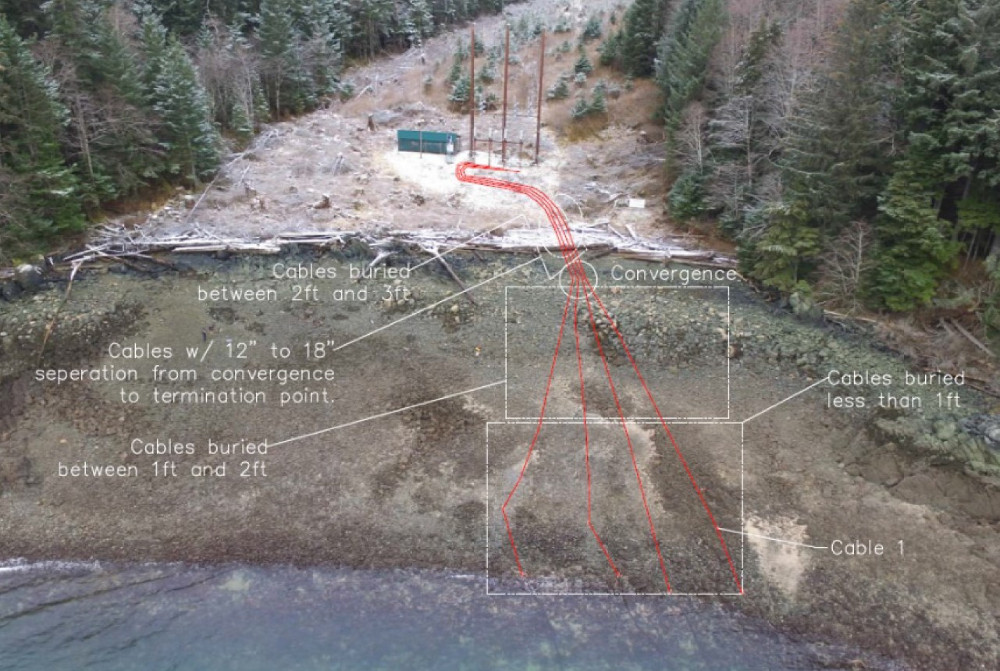
Petersburg’s wholesale electrical power provider is moving forward with replacement of a damaged submarine transmission line that supplies hydroelectricity to Petersburg.
The line failed in late September when a fault occurred on a cable about two thousand feet off the shoreline of Woronkofski Island between Wrangell and Petersburg. That power line supplies hydroelectricity from the Tyee Lake plant south of Wrangell.
Bob Lynn is a Petersburg borough assembly member and is chairman of the Southeast Alaska Power Agency (SEAPA) board this year. He reported to Petersburg’s assembly Monday.
“The decision’s now been made that we will go try to lay a new cable,” Lynn told the assembly. “So we’re back working with (U.S. Army) Corps of Engineers because we have new locations for this cable that would come across. And we’re also putting out an RFP looking for a company to come in and lay a new cable across.”
That RFP or request for proposals will seek a company that could install a new cable across the Stikine Strait sometime later this year.
SEAPA had a backup system in place which kept Petersburg on Tyee electricity through the winter. It provides the bulk of the community’s power. But the fault left the system with no remaining back up should any of the remaining cables also fail.
“We’re OK now; we’re in pretty good shape but if we lose one of the cables that we have now currently come across from Wrangell then we are totally on diesel power and our rates go from 6.8 cents to 30 plus cents to give you an idea of the difference,” Lynn said.
The cables were installed in 1982 on the ocean floor across the Stikine Strait. Petersburg would still have power from its hydro plant at Blind Slough on southern Mitkof Island if those cables fail. But that covers only about a quarter of the community’s power demand.
Lynn also told the assembly that SEAPA’s two mountaintop reservoirs at Tyee Lake and Swan Lake have good snow stockpiles and should not be short of water going into the summer. Just a year ago with low snowfall and a drought, Petersburg, Wrangell and Ketchikan were forced to make power with backup diesel generators when those lake levels drained to near their minimums.









